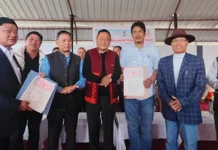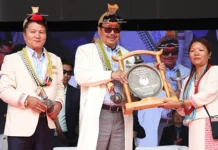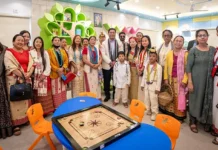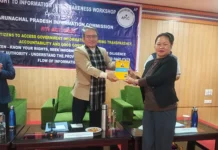[ Bengia Ajum ]
YINGKIONG, 4 Mar: The Upper Siang district administration has issued an order banning “prayer healing, healing crusades, healing through local priests (epak), pujas,” etc, “by whatsoever name/nomenclature called,” in public areas, through an order issued on 28 February.
The order also reads that “such practices are misleading the innocent people from taking courses in scientific medical treatment and cause severe health issues.”
“It also gives rise to socio-cultural problems like conversion to other faiths and thereby spreads discord among people and groups,” the order read.
The order is being seen as curtailing the religious rights under Article 25 of the Constitution. Many took to social media, expressing dismay over DC Hage Lailang’s issuing such an order. The locals believe that the order could create communal disharmony.
When contacted, the DC claimed that he has no intention to hurt the religious sentiments of any group with the order.
“Our office received a letter from the Indigenous Faith and Cultural Society of Arunachal Pradesh in this regard. The conduct of religious events claiming to cure or heal through quackery is a matter of concern. This order will apply to all religious groups,” the DC said.
However, he said that, if any religious group feels offended by the order, it may officially write to his office.
“The order can be challenged. If we receive any letter challenging the order, we will definitely look into it,” he said.
One of the most prominent Christian rights activists of India, John Dayal, while reacting to the order, in a Facebook post stated, “This is not against fake medicines or bearded men of any faith. Most will continue adding to their billions. But this and similar orders in other states could lead to the targeting of a particular minority.”
Reacting to the order, Arunachal Christian Forum adviser Toko Teki said that citizens living in a secular democratic country have the right to choose a religion of his or her choice.
“Holding a prayer meeting in public is part of many religions. And people participate in these programmes by their own choice. Therefore, putting a ban on such religious gatherings is undemocratic and infringing on the rights of the people to practice their religion in a free manner,” said Teki.




